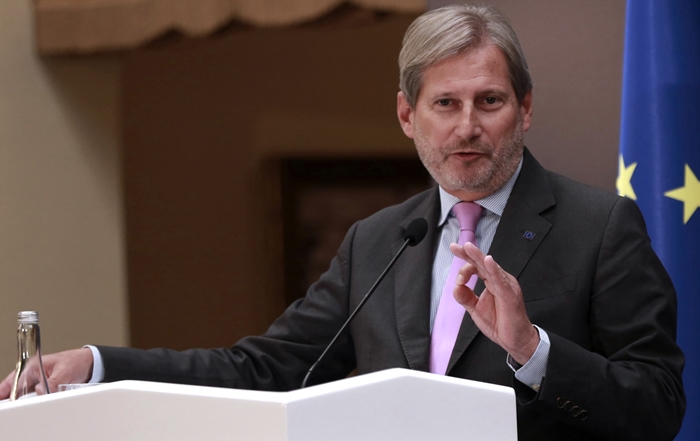The European Union’s Turkey 2016 Report, released on Wednesday, strongly criticized Turkey as a candidate country for backsliding in the areas of rule of law and fundamental rights and for damage inflicted on the functioning of the judiciary and freedom of expression.
After the announcement of the report, European Commissioner for European Neighbourhood Policy & Enlargement Negotiations Johannes Hahn delivered a speech summarizing the basic findings of the report, also known as the “progress report.”
Hahn said that “Turkey has apparently chosen to move away from Europe” and called on Turkey to “take a clear decision about [its] future.”
Reminding Turkey of the democratic standards of the European Union, Hahn said there is “no ‘Turkish variant’ of democracy or the rule of law. There is only one democracy, one rule of law to be fulfilled by all candidate countries.”
Responding to Turkey’s intention to reinstate capital punishment, he made clear that abolition of the death penalty is a requirement for membership.
According to Hahn, the report is a “wake-up call” for member states to start an open discussion about the bloc’s future relationship with Turkey. While acknowledging the difficulties presented by the coup attempt of July 15, Hahn directed attention to the government’s measures affecting “the whole spectrum of Turkish society, from the military and the police to university professors, teachers, lawyers and judges, media and all parts of the business community. The very large scale of detentions and arrests combined with the seizing of property, the overall lack of due process and credible reports of ill treatment and torture can hardly be seen as ‘protective, pre-cautionary measures’ under the state of emergency. These measures are, on the contrary, de-stabilising the country and polarizing the society to the highest degree,” he said.
In the face of all these grave developments, Hahn said they cannot continue relations with Turkey as “business as usual.”
Despite severe criticism of Turkey, the EU appreciates Turkey’s “remarkable achievement” on the refugee issue, he said, adding that the EU’s cooperation with Turkey produced “tangible results,” dropping the number of migrants heading from Turkey to Greece from 739,000 to 18,000. The EU has already paid 700 million euros to Turkey out of a promised 3 billion from the Facility for Refugees in Turkey.
Hahn also criticized Turkey for the worsening situation in the Southeast, calling for a political solution to the Kurdish issue. Criticizing the counterterrorism law, the EU states that this legislation must be changed to ensure it is not used against journalists, academics and the opposition.

